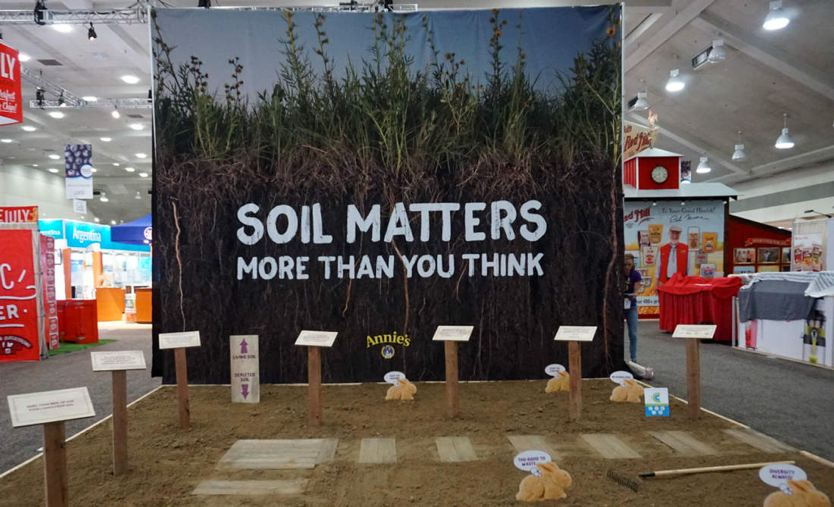General Mills and Its Natural & Organic Brands Join Annie’s in Forging Ahead on Climate Action
by Erin Callahan

First published on Climate Collaborative's blog
We are very excited to see the Climate Collaborative community growing today with General Mills and its nine Natural and Organic (N&O) brands making new climate commitments. With these new commitments, the entire General Mills N&O product line is now represented in the Collaborative.
Alongside this announcement, General Mills is also coming on board as a Climate Collaborative donor at the highest Catalyst level, which means they’ll be helping fund vital programming and events as we look to the project’s second year.
It is incredibly exciting to have such a large company see the value in the collaborative platform we’ve created—and to see them expand the strong record of climate performance from Annie’s and EPIC out to all of their other natural products brands.
Joining Annie’s, a founding member of the Collaborative, the following brands are announcing new commitments today alongside their parent company:
- Cascadian Farm
- EPIC
- Muir Glen
- Immaculate Baking Company
- Larabar
- Food Should Taste Good
- Mountain High
- Liberté
- General Mills
Having all these brands work together on ambitious climate initiatives—from agriculture to transportation and food waste—really shows a level of industry momentum and energy around climate action and the work that we have begun here through the Collaborative.
You’ll be able to hear more about the work that Annie’s, Epic, and other General Mills brands are doing on Climate Day, where Carla Vernón will give one of our keynote addresses. We’ve also heard rumors that they will once again bring an exciting, non-traditional booth to Expo West that focuses on General Mills N&O brands’ commitment to environmental stewardship.
Here are a few examples of what General Mills and its N&O brands are doing:
Energy Efficiency:
In 2017, General Mills completed more than 76 energy efficiency and reduction projects across the company, focused on common systems such as compressed air, lighting and steam/hot water. These projects saved over 21 million kWh, delivered US$2 million in cost savings and avoided nearly 15,000 metric tons CO₂e of GHG emissions.
Transportation:
All nine General Mills N&O brands have signed onto the transportation commitment. Six of the N&O brands (Annie’s, Cascadian Farm, Immaculate Baking, Muir Glen, Food Should Taste Good, and Larabar) are included in the General Mills Hub & Spoke model, through which finished goods are stored at three central U.S. distribution hubs before product volumes are precisely allocated to localized distribution spokes based on customer demand. This model helps optimize transportation by reducing empty truck space and unnecessary transportation miles.
In 2017, EPIC changed their pallet patterns to enable double stacked pallets on trucks. This has allowed them to get the same amount of cases on 30% fewer trucks, reducing total transportation miles.
Mountain High and Liberté, two General Mills N&O yogurt brands, face unique challenges to making transportation and distribution efficient because of yogurt’s short shelf-life and high sensitivity to temperature changes. These brands are taking on this challenge by optimizing the number of times the yogurt is moved between warehouses and trucks to reduce truck-miles, empty truck space, and food waste.
Agriculture:
Cascadian Farm, a pioneer in organic since 1972, is working with The Land Institute to commercialize Kernza, a perennial wheat and wild relative of annual wheat, whose deep roots show promise to increase soil health, carbon sequestration, water retention and enhance surrounding wildlife habitat.
Through its partnership with The Savory Institute, EPIC is committed to advancing global large-scale grassland restoration efforts and encourages suppliers to implement holistic planned grazing practices, which promote improved environmental and herd health outcomes.
Annie’s is building upon its commitment to organic by focusing on measuring the outcomes from regenerative farming practices like minimized tillage and cover cropping, which help draw carbon underground. Through their participation in the Climate Collaborative’s Rooted Community carbon farming action group, they share these practices with other companies in the industry.
General Mills is working to both verify the implementation of and measure quantitative results from on-farm practices that lead to three outcomes of interest: soil health, aboveground biodiversity, and farmer economic resilience. In time for Expo West, General Mills will be releasing version 1.0 of their Regenerative Agriculture Scorecard – a tool designed to use within their own supply chain, with an emphasis on farmers. This tool will be made public, inviting feedback and engagement from others who are taking steps on this journey toward regenerative agriculture.

